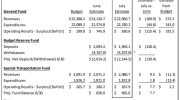
Hartford, CT – Attorney General William Tong joined a coalition of over 30 other attorneys general announcing a $113 million settlement with Apple, Inc. over iPhone throttling that the company engaged in in 2016 to address unexpected shutdowns in certain devices. Under the settlement, Apple will pay $1.8 million to Connecticut.
“Apple failed Consumer Protection Law 101— don’t deceive your customers. They have already agreed to pay up to $500 million directly to consumers as restitution. Now, they will pay $113 million to states to address egregious violations of our consumer protection laws. This settlement also includes strong injunctive relief mandating truthful ongoing disclosure of battery health and phone performance,” said Attorney General Tong. “They knew their iPhones had battery issues. They should have openly and honestly fixed the problem. Instead, they hatched a scheme to covertly slow down customers’ phones. Mistakenly believing their phones were obsolete, consumers went out and bought new phones—handing Apple a windfall profit they had no business taking. Acting in close coordination with attorneys general across the nation, we stand ready to take aggressive action to protect consumers from fraud and deception.”
“This case shows the importance of business transparency and highlights what consumers should reasonably expect from the companies where they spend their hard-earned money,” said DCP Commissioner Michelle H. Seagull. “Companies should provide truthful and adequate information to consumers about the products they are purchasing, and provide updates to customers if there is a problem.”
Following a multistate investigation, the attorneys general allege that Apple discovered that battery issues were leading to unexpected shutdowns in iPhones. Rather than disclosing these issues or replacing batteries, Apple concealed the issues from consumers. Apple’s concealment ultimately led to a software update in December 2016 that reduced iPhone performance in an effort to keep the phones from unexpectedly shutting down.
The attorneys general allege that Apple’s concealment of the battery issues and decision to throttle the performance of consumers’ iPhones led to Apple profiting from selling additional iPhones to consumers whose phone performance Apple had slowed.
In addition to the monetary payment to the states, Apple also must provide truthful information to consumers about iPhone battery health, performance, and power management. Apple must provide this important information in various forms on its website, in update installation notes, and in the iPhone user interface itself. Apple recently also entered into a proposed settlement of class action litigation related to the same conduct, and under that proposed settlement Apple will pay out up to $500 million in consumer restitution.
The investigation was led by Arizona Attorney General Mark Brnovich, Arkansas Attorney General Leslie Rutledge, and Indiana Attorney General Curtis Hill.
Assistant Attorneys General Brendan Flynn and Michael Wertheimer, head of the Consumer Protection Department, assisted the Attorney General in this case.











